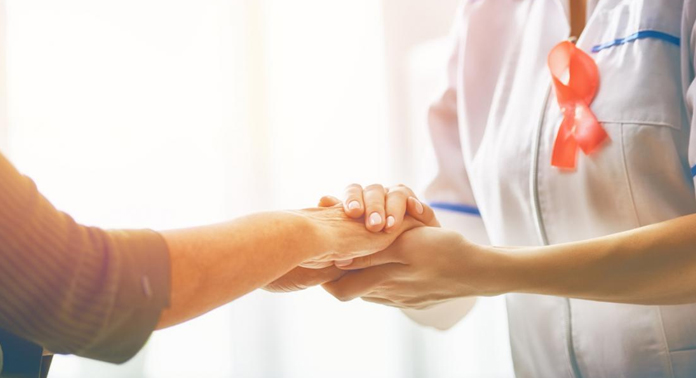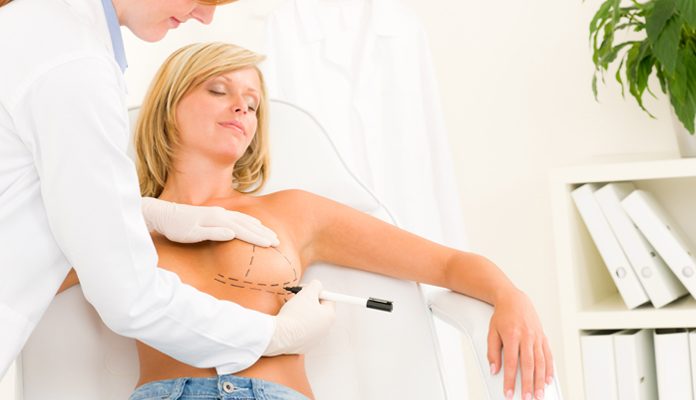The disease of breast cancer affects a person both physically and mentally. Not just the obvious sufferance of being diagnosed with breast cancer and requiring the associated treatments and cures, a person will also experience some unexpected physical changes after being affected.
Breast cancer indicates cancer that starts to grow in the cells of the breasts. It can be metastatic cancer that spreads from the cells of the breasts to other parts of the body. Effects of breast cancer are many, and there are also several ways to deal with them.
The most common early symptom of breast cancer involves a change in the breasts. Usually, it can be noticed easily. In some cases, it may not be quite prominent. If there is any confusion, it is best to consult a doctor.
Always remember, the earlier the cancer is detected, the better it is. If detected at the initial stage, the cancer growth can be prevented from spreading, which eventually turns life-threatening. A doctor can find the affected areas before you even realize the symptoms are occurring in your body.
Stage 0 of breast cancer is the earliest, and it is best if the problem is detected in this stage so that one can quickly recover. The latest stage is Stage 4, when the cancer is beyond recovery. The last stage begins when cancer has spread to other body parts like the bones, liver, lungs, muscles and even brain.
Symptoms and Effects of Breast Cancer
The signs are generally not noticeable during the earliest stage of cancer. As breast cancer progresses, you will observe certain symptoms like:
- A breast lump or breast tissue thickening
- Strange discharge from the nipples which can be bloody also
- The growth of new inverted nipples
- Skin changes around the breasts
- Change in shape and size of breasts
With the upper, padded portion of your fingers, try to look for the breast lump formation. During a shower, this self-examination will be easier with soap and water. You can also lightly squeeze the nipples to see if any blood or discharges come out. The mass or lump is generally irregular in shape and size and is painless.
Integumentary or the Skin system
The skin around the affected area will seem changed. The skin may change in colour, turn itchy, dry and cracked. Some women may also notice the skin pushing inward, forming dimples and also inverted nipples. The skin tissue also thickens on being affected with breast cancer.
Excretory and Immune System
As the stages of cancer progression, cancer spreads to other lymph nodes. The underarms are generally one of the most affected areas as they are closest to the area infected with breast cancer. Tenderness and swelling of the skin are common effects.
Moreover, the lymphatic system also transmits and spreads cancer, and it can even affect the liver and lungs and deter their functions.
Skeletal and Muscular systems
Breast cancer also spreads to bones and muscles. As cancer affects these regions, you may feel difficulty in moving and pain in some areas. These effects can increase the risk of injuries due to mobility restrictions. Bone fractures are more prone to happen during this time too.
Nervous system
Breast cancer can also reach the brain. This can further lead to many neurological effects, blurry vision, headache, memory loss, slurry speech, mobility problems, and many more.
Other Systems
Other symptoms of breast cancers include:
- Excessive tiredness and fatigue
- Weakness
- Hair loss
- Skin changes
- Night Sweats
- Hot flashes
- Loss of hunger
- Weight loss or gain
- Menstrual changes
- Infertility

Risk Factors of Breast Cancer
Both biological and environmental circumstances lead to the chances of breast cancer for one. Risk factors that are biological include:
- Being a woman over 55 years
- Caucasian roots of one’s being
- A family history of breast cancer
- The period before 12 age and menopause after 55 ages
- Certain types of gene mutations having thick breast tissue
The risk factors associated with the environment are:
- Sedentary lifestyle
- Poor diet
- Overweight and obese
- Too much alcoholic beverages consumption
- Regularly smoking tobacco
- Side effects of radiation for breast cancer especially before 30
- Taking the particular type of hormones for menopause
Do not blindly go by these risk factors. More than 60% of people are diagnosed with breast cancer and still never face these risk factors, and then again, many have suffered from these problems but not breast cancer.
Changes to the Body after Certain Medical Procedures
There are several surgeries for breast cancer that can affect the body. Surgeries carry the risks of infection and bleeding. However, it is essential to remove the tumour and lymph nodes.
Lumpectomy
A lumpectomy is also known as surgery for breast-conserving. This procedure only removes smaller tumours without removing the entire breast. The tumour and even the margin of the tissue are removed. This removal leads to physical changes and asymmetrical breasts.
Mastectomy
Mastectomy is performed on larger tumours. This procedure involves the entire removal of the breast. The lobules, ducts, skin, tissue, nipple, and areola are all removed. Sometimes both the breasts are removed, called the contralateral prophylactic mastectomy.
Removal of Lymph Node
Surgeons remove lymph nodes found underarm. Sentinal node biopsy is performed to check for evidence and suspicion whether cancer has spread to lymph nodes. In case the results are positive, the axillary lymph node dissection is performed.
In this case, the doctor removes as many cancerous nodes as required. Post lymph node dissection causes pain and problem with mobility.
Radiotherapy
Radiation therapy or radiotherapy is a highly targeted and effective way to destroy the breast’s cancer cells that remain even after surgery.
Although its side effects are temporary, few may be permanent. They can appear even after months and years after the treatment is done. Immediate side effects of breast cancer radiation include:
- Skin changes like dryness, itch, and blisters, flaky skin or peel-off
- Skin color changes to pink or darker
- Skin can turn red or soar
- Swelling or Lymphoedema
- Pain in the breast and chest area
- Breast shape size and color changes
- Stiffness and discomfort
- Mobility issues
- Hair loss from the body
- A sore throat
- Fatigue and tiredness
- Bones become weak
- Damage to the nerves
- Heart problems risks
- Hardening of skin tissue
Adjust to New Body Changes
You can consult with doctors and plastic surgeons before undergoing the necessary surgery. Reconstruction of the breasts can be done by salvaging the breast tissue or using silicone implants or even water-filled implants. Prosthetics are another method of reconstruction.
A prosthesis can be placed into the bra to fill the gap of the breast. These artificial breast forms can be of various shapes, sizes, and materials. Apart from reconstruction, there are other ways you can adjust to the new body changes like:
- To reduce weight gain, follow a healthy diet with lots of vegetables, fruits, and whole grains. Limit the intake of sugar, drink plenty of water, and try to be physically active always.
- Diuretic medications can help to remove excess water from the body.
- Cut your hair short before chemotherapy so that the hair loss will not feel very significant. There are wigs of various styles, cuts, shades, and lengths, and styles. You can wear a scarf or hat too.
- Wear loose and comfortable fitting clothes to avoid skin irritation. Doctors can recommend various medicines, ointments and creams to soothe the skin irritation.
Early detection is the key to early treatment and better survival ratios. It is recommended that women over 50 years should have a mammogram every alternate year at the most. Also, it is a good idea to go for routine check-ups, especially if any symptom is noticed.
Mammograms and other breast screenings can help in the early detection of cancer. Imaging tests will help the doctors to find cancer issues even before you feel any symptoms. This will help to speed up the process of treatment and result in a more positive outcome. If you suffer from depression due to body image, families, friends, and well-wishers will help you feel better.






